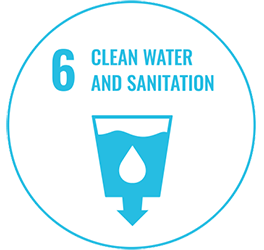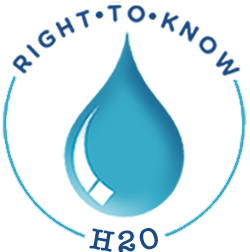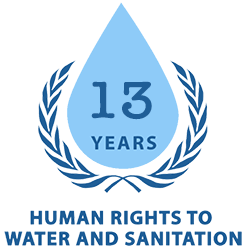 Advanced read: The Right-to-Know H2O Team will petition United Nations Secretary General António Guterres requesting the U.N. to declare the right-to-know water quality a fundamental human right. See below.
Advanced read: The Right-to-Know H2O Team will petition United Nations Secretary General António Guterres requesting the U.N. to declare the right-to-know water quality a fundamental human right. See below.
His Excellency Secretary General António Guterres
United Nations
405 East 42nd Street
New York, NY, 10017
Dear Secretary General Guterres,
We are a team of six Pace University students in the Blue CoLab program of Seidenberg School of Computer Science and Information Systems, inducted in September 2023 as United Nations Millennium Fellows. We formed Right-to-Know H2O based on the principle that the human right to clean water requires a corresponding human right-to-know if water is clean. Fulfillment of this right is technologically feasible and will inform and protect hundreds of millions threatened annually with waterborne illnesses.
Below, we respectfully submit our petition to recognize the right-to-know water quality through a formal U.N. resolution and amendments to United Nations Resolution 64/282 of 2010, “the Human Right to Water and Sanitation.” and Sustainable Development Goal 6, “Ensure availability and sustainable management of water and sanitation for all.”
The human right-to-know water quality begs for explicit recognition. A U.N. resolution will: provide added essential protections from waterborne disease, help fulfill the universal free flow of information that the U.N. has consistently demanded, further the cause of human rights, and spur innovations that will make right-to-know water quality a reality.
It is our belief that with U.N. leadership the technological and financial capacity of global institutions will lead to a revolution in how the world understands drinking water, and how it protects individuals from exposure to contamination. We are eager to meet with you or your representative to discuss this urgent initiative.
Thank you for your kind attention.
Respectfully submitted,
Sasha Breygina, Lilah McCormack, Meryl Mizell, Louisa Moquete, Sasha Palmer, Cecelia Porter
Right-to-Know H2O
*. *. *
Petition for the adoption of a United Nations resolution declaring the right-to-know water quality a fundamental human right, and for the amendment of relevant sections of United Nations Resolution 64/282 of 2010, “Human Right to Water and Sanitation,” and Sustainable Development Goal 6, “Ensure availability and sustainable management of water and sanitation for all.”
Whereas, Pace University students and United Nations Millennium Fellows Sasha Breygina, Lilah McCormack, Meryl Mizell, Louisa Moquete, Sasha Palmer, and Cecelia Porter of the Blue CoLab program in the Seidenberg School of Computer Science and Information Systems, formed “Right-to-Know H2O” based on the principle that the human right to clean water requires a corresponding human right-to-know if water is clean.
Whereas, 2.2 billion people will be threatened with unsafe water this year, and pathogenic contamination of water is endemic globally, causing 3.4 million deaths, and more than one billion illnesses worldwide annually, including in developed nations, such as the United States, where contaminated water causes 19.5 million illnesses, resulting in $6 billion in health care costs;
Whereas, climate change effects can substantially increase the incidence of waterborne pathogenic illnesses due to the increased mobilization of pollutants already in the enviironment, according to the International Panel for Climate Change, the World Health Organization, and the United States Environmental Protection Agency;
Whereas, “Early detection of pathogens and timely dissemination [of information] is critical,” for the mitigation of disease, epidemics and pandemics generally, as concluded by an international Covid-19 study led by the University of Huddersfield. And yet, there is no technology-based, global “early warning and response system” that alerts water users about pathogenic contamination of their water;
Whereas, the United Nations recognized safe drinking water and sanitation as a fundamental human right, “essential to the realization of all human rights,” through the adoption of Resolution 64/292, “Human Right to Water and Sanitation,” on July 28, 2010;
Whereas, Resolution 64/292 calls upon United Nations Member States and international organizations to provide financial resources, capacity-building, and technology transfer to help countries, particularly developing countries, to provide sufficient, safe, clean, accessible, and affordable drinking water and sanitation for all;
Whereas, in 2015, United Nations Member States furthered their commitment to the human right to safe water through the adoption of Sustainable Development Goal 6: “Ensure availability and sustainable management of water and sanitation for all”;
Whereas, the right to safe drinking water can only be realized if individuals are guaranteed their fundamental right-to-know the quality and safety of the water they consume in as timely a fashion as technologically possible, thereby enabling individuals to make informed choices about their health and well-being;
Whereas, global technology-based early-warning and information systems are in common use for health and safety threats such as weather events, storm dangers, tsunamis, earthquakes, and more, delivered by a worldwide communications network powered by the Internet, and 17 billion cellular devices;
Whereas, through a U.N.-sponsored global collaborative initiative, the technological and financial capacity of world institutions can be harnessed to devleop the innovations that will make right-to-know water quality a reality;
Whereas, Article 19 of the Universal Declaration of Human Rights states: “Everyone has the right to . . . receive and impart information and ideas through any media and regardless of frontiers”;
Whereas, on International Day for Universal Access to Information, the U.N. declared, “Universal access to information is a cornerstone of healthy and inclusive knowledge societies. Universal access to information means that everyone has the right to seek, receive and impart information”;
Whereas, Principle 10 of Rio 1992, the United Nations Conference on Environment and Sustainable Development, states, “Each individual shall have appropriate access to information concerning the environment. . .[and] States shall facilitate and encourage public awareness and participation by making information widely available”;
Whereas, the constitution of UNESCO calls upon Member States to advance mutual knowledge and understanding between peoples through the “free flow of ideas necessary for innovation and bolstering accountability and transparency”;
Whereas, the universal right to information continually reaffirmed by the United Nations must now be formally extended to include explicitly the human right-to-know the quality of water;
Whereas, the technological innovations necessary to ensure right-to-know water quality and provide early warning and response regarding drinking water contamination are essential tools for the protection of the health of individuals and communities;
Whereas, a United Nations resolution recognizing the human right-to-know water quality will prompt States, international organizations, world financial institutions, the technology sector, and United Nations divisions to foster the development of innovations that will establish right-to-know water quality and an early warning system regarding drinking water contamination as global standards for the protection of human health;
Now, therefore, do we respectfully request that the United Nations:
Adopt a formal resolution declaring the right-to-know the quality of drinking water a fundamental human right essential for assuring access to safe and clean water. The resolution should call upon Member States, U.N. divisions, international organizations, and the public and private technology sectors to foster the innovations necessary to assure ready access to water quality information, and enable the implementation of a global “early warning and response system” for the protection of water users.
Amend United Nations Resolution 64/282 of 1970, “The Human Right to Water and Sanitation” by inserting the following text after paragraph 2 : “The human right to safe water shall be understood to include the human right-to-know the quality of water before consuming it.”
Amend Sustainable Development Goal 6, “Ensure availability and sustainable management of water and sanitation for all,” by adding the following new section and text: “6.2.1. By 2030, ensure universal access to information about the quality of drinking water, and early warning and response systems that will provide immediate alerts to water consumers regarding contamination that threatens their health.”





